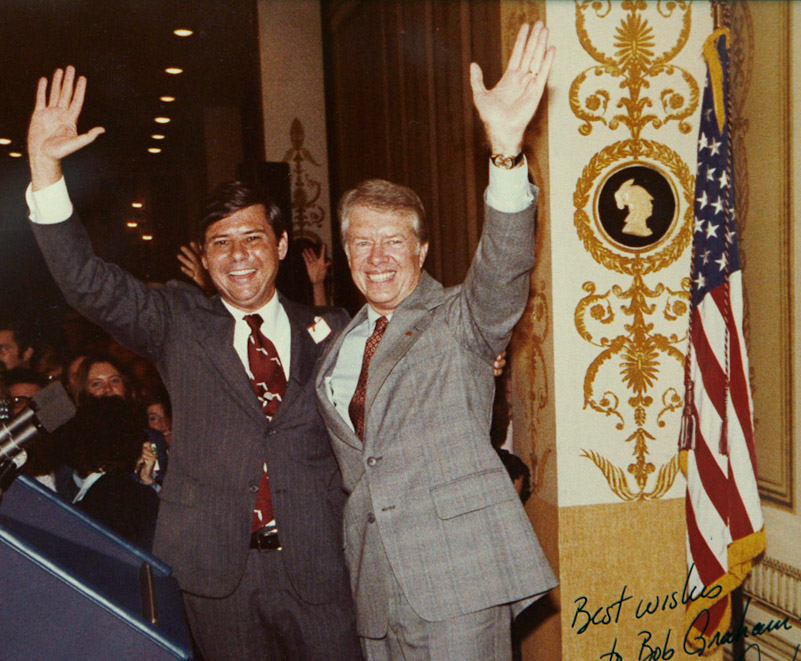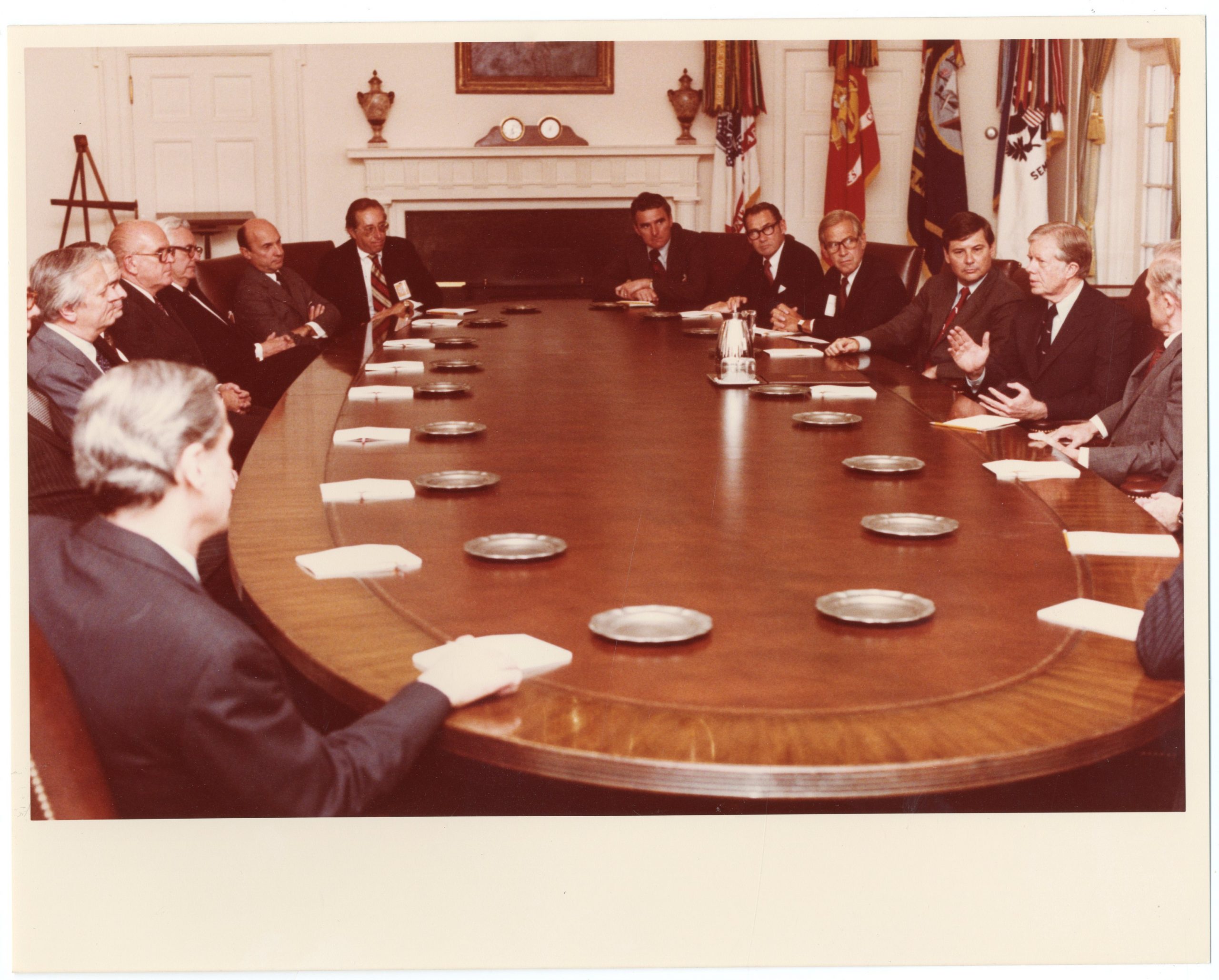

The Bob Graham Center for Public Service sends our heartfelt condolences to the Carter family on learning of the deeply personal and national loss of former President Jimmy Carter. President Carter died yesterday, December 29, 2024. He was preceded in death by his wife of over 77 years, Rosalynn Smith Carter.
In his visit to the University of Florida on March 31, 2015, President Carter introduced a new generation of young Floridians to his fondly remembered legacy as a leader in a new wave of forward-thinking southern leaders.
At the event, First Lady Rosalynn Carter had been planning to speak on her work about mental health, one of many issues on which she had been a preeminent leader. When Mrs. Carter was not feeling well, President Carter took her place on the Phillips Canter stage before a packed house to address the importance of mental health, showcasing the unique qualities that enabled the Carters to fundamentally reshape public service and establish an exceptional post-presidential legacy.
“President Jimmy Carter has left behind one of the most consequential post-presidential legacies in modern history,” says Matthew Jacobs, Director of the Bob Graham Center. “We will miss President Carter’s national presence, and his support for the ideals of public service.”
President Carter enhanced his impact and legacy following his presidency by remaining devoted to peacemaking, environmentalism, Habitat for Humanity, mental health, international election monitoring and voter protection, on which President and Mrs. Carter were at the global forefront.
He and former Florida Governor and U.S. Senator Bob Graham shared a passion for remaining active in public life after office, as they both founded eponymous centers that inspire young individuals to actively engage in the world around them.
During his visit to the Graham Center, President Carter also delivered an online monologue in which he stated, “I think every human being has an obligation to see the things around him that are troubling, and try to correct them at the local level or a more expansive level.”
From President Carter’s tenure as Governor of Georgia to his presidency, the Carters and Grahams developed a close bond as collaborators and friends, united by their shared values and parallel journeys in politics.
President Carter and then-Governor Graham often traveled together, attended events, and campaigned side-by-side. In 1980, Gov. Graham was honored to deliver the nominating speech for President Carter’s reelection at the Democratic National Convention in Madison Square Garden.
The “New South” culture of Carter, Graham, Bill Clinton, Reubin Askew and more southern governors fundamentally reshaped public service by leading their parties and states away from their segregationist history and towards a more inclusive culture and economy.
Former Graham Center Director David Colburn wrote of the New South in From Yellow Dog Democrats to Red State Republicans, “All these governors championed the modernization of their states and regarded racial justice as a central component of this modernization process.” Colburn credits President Carter with being a leading spokesman of the up-and-coming New South movement.
President Carter is also been remembered for various accomplishments during his presidency as well as after. He won the Nobel Peace Prize “for his decades of untiring effort to find peaceful solutions to international conflicts, to advance democracy and human rights, and promote economic and social development.”
He achieved historic diplomatic successes on the Camp David Accords and Egypt-Israel peace treaty, and the peaceful restoration of the Panama Canal management to Panama. He further initiated momentous plans to protect the environment with his ahead-of-its-time national energy policy that pushed forward conservation and renewable energy, and famously placed solar panels on the White House.
In office, President Carter and Governor Graham worked together especially on matters of international affairs and environmental policy. Under pressure from Graham, President Carter also negotiated a mutual agreement to end the Mariel boatlift crisis before the end of his term.
Perhaps there is no better embodiment of President Carter’s continuing impact than the life-changing work of the Carter Center: “Waging Peace. Fighting Disease. Building Hope.”
View the images of President Carter’s 2015 appearance at the University of Florida.
Editor’s Note: Former Graham Center student assistant Andrew Shodell contributed to this report.